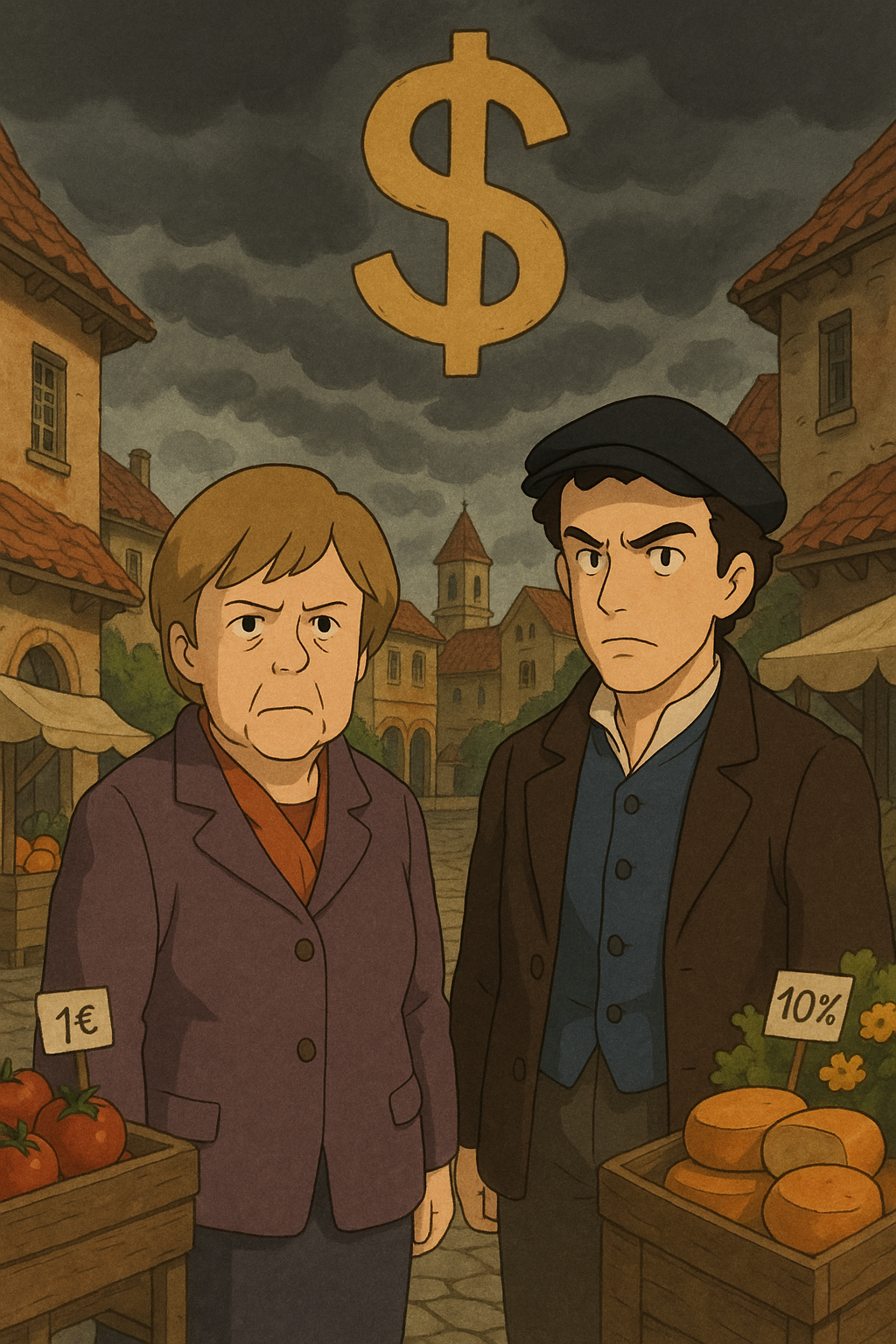> YOUNEWS DAILY REPORT
⚡️ a FastAIConsulting project ⚡️
EU-US Trade Deal Faces Criticism Amid Economic Concerns

Updated: 2025-09-04 05:24 BST
Built by FastAI Consulting
Top Lines
- Germany and France sharply criticize the EU-US trade deal, expressing concerns over its economic impact.
- The agreement imposes a 15% US tariff on most EU imports, a significant increase from previous levels.
- European stock markets react negatively, with declines in key indices and sectors.
What Happened
On July 28, 2025, the European Union and the United States finalized a trade agreement imposing a 15% tariff on most EU imports. This deal, announced by European Commission President Ursula von der Leyen and US President Donald Trump, has faced sharp criticism from German Chancellor Friedrich Merz and French Prime Minister François Bayrou. Merz stated that the agreement would lead to higher inflation and negatively affect transatlantic trade, calling it the "best result achievable" under the circumstances. Bayrou labeled the deal a "dark day" and accused the EU of submitting to US pressure. The announcement led to a decline in the euro by over 1% against the dollar and a drop in European stock indices, particularly in the automotive sector. (ft.com)
Why It Matters
- Economic Impact: The new tariffs are expected to increase costs for European exporters, potentially leading to higher consumer prices and reduced competitiveness in the US market.
- Market Reactions: The immediate market response includes a significant drop in the euro and declines in European stock indices, indicating investor concerns over the economic implications of the trade deal.
- Political Tensions: The criticism from Germany and France highlights ongoing tensions within the EU regarding trade policies and relations with the US.
Key Numbers / Facts
- 15%: The new US tariff rate on most EU imports, up from previous levels.
- 1%: The decline in the euro against the dollar following the announcement.
Timeline (Today, 2025-09-04)
- July 28, 2025, 16:28 BST: EU and US announce a 15% tariff on most EU imports. (ft.com)
Sources
- Financial Times – Germany and France hit out at EU-US deal — published 2025-07-28 16:28 BST